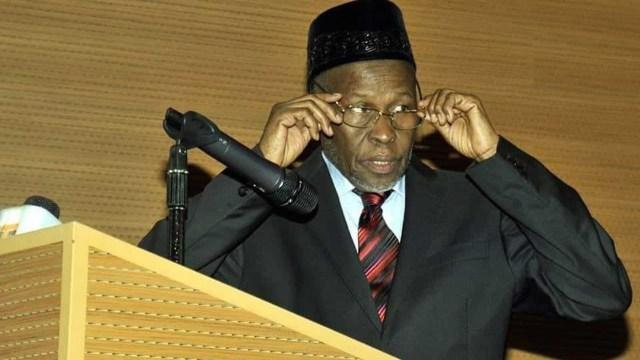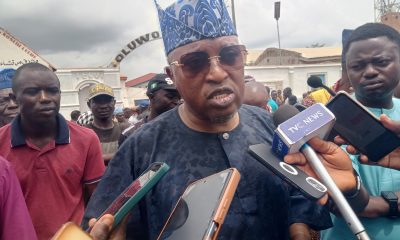News
Just In: CJN Tanko Muhammad Resigns Amid Corruption Allegations

Justice Ibrahim Tanko Muhammad has resigned as the Chief Justice of Nigeria (CJN).
He reportedly tendered his resignation in a letter to President Muhammadu Buhari, citing health reasons.
How unresolved feud between CJN, justices led to public spat
You are to be seen, not heard, CJN replies judges who accused him of corruption
The development comes amid the corruption allegations some Supreme Court judges levelled against him.
In a protest memo signed by 14 Supreme Court judges, Muhammad was accused of not giving justices their legitimate entitlements.
The justices said their annual foreign training, meant to enhance capacity building for the country’s judicial process, had been blocked by Muhammad.
The main issues put forward by the justices in their letter through a welfare committee were; non-replacement of poor vehicles; accommodation problem; lack of drugs at the Supreme Court clinic; epileptic electricity supply to the Supreme Court; increase in electricity tariff; no increase in the allowances for diesel; lack of internet services to residences and chambers.
They also claimed that while the CJN made provision for his personal staff and family members to travel abroad, only few judges have had the opportunity under Muhammad.
The CJN had replied the judges, giving a breakdown of the expenses that the nation’s apex court made under him.
He had also explained that he refrained from joining issues with the judges until the letter which ought to be personal started spreading the society.
“This was akin to dancing naked at the market square by us with the ripple effect of the said letter,” Muhammad had said in his response, adding, “The Supreme Court definitely does not exist outside its environment, it is also affected by the economic and socio-political climate prevailing in the country. Besides that, the Apex Court has to a larger extent, been living to its constitutional responsibility.
“The accusation so far, in summary is that more or all ought to have been done and not that nothing has been done; which is utopian in the contemporary condition of our country.”
Muhammad had stepped into office after Walter Onnoghen, his predecessor, was removed on a controversial note in 2019.
Onnoghen was suspended in 2019 after a civil rights group filed a petition against him at the Code of Conduct Bureau (CCB).
Among the allegations levelled against him was owning some secret foreign accounts, which were run in a manner inconsistent with financial transparency and the code of conduct for public officials.
Although he denied the allegations, Onnoghen was convicted by the Code of Conduct Tribunal on April 18, 2019, for false assets declaration, and banned from holding public office for 10 years.
-

 News5 days ago
News5 days agoOsun 2026: Former SSG Adeoti, Thousand Of Supporters Declare Support For Adeleke
-

 Education4 days ago
Education4 days ago150 CHEW & JCHEW Graduates of OSCO-HEALTH, Ilesa Inducted into Nigeria’s Community Health Practitioners Board
-

 News4 days ago
News4 days agoCourt Dismisses Suit Challenging Appointment Of Alawo Of Awo, Awards ₦1m Costs
-

 News4 days ago
News4 days agoWoro Massacre: Oluwo Reacts To Low Sympathy, Cautions Tinubu Against Trump’s Intervention


